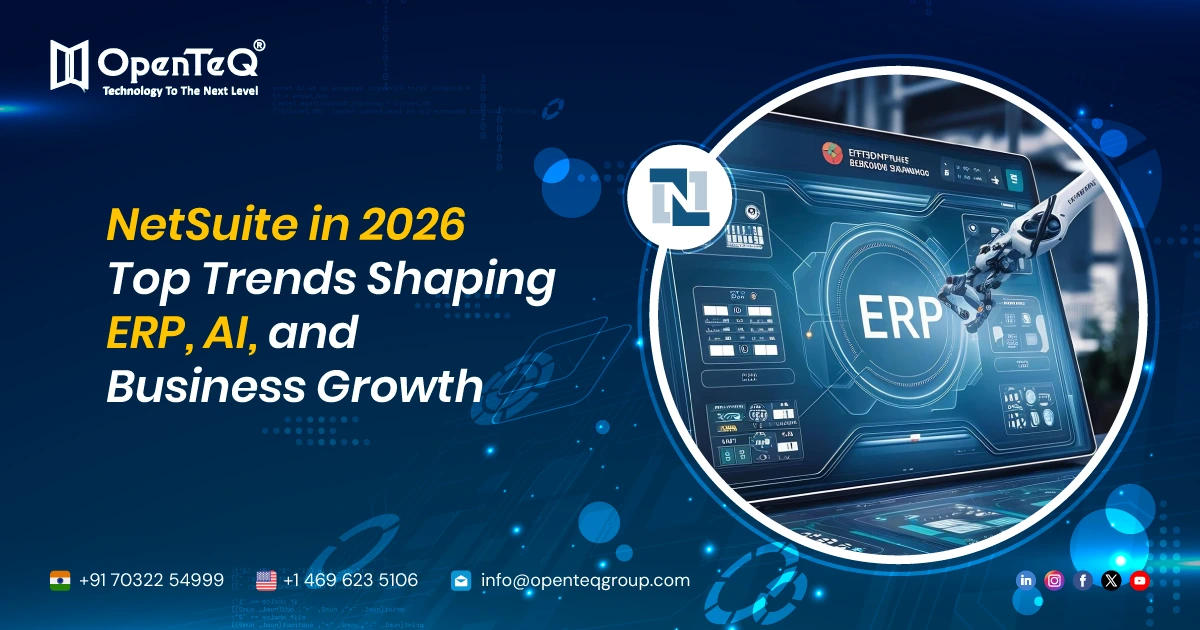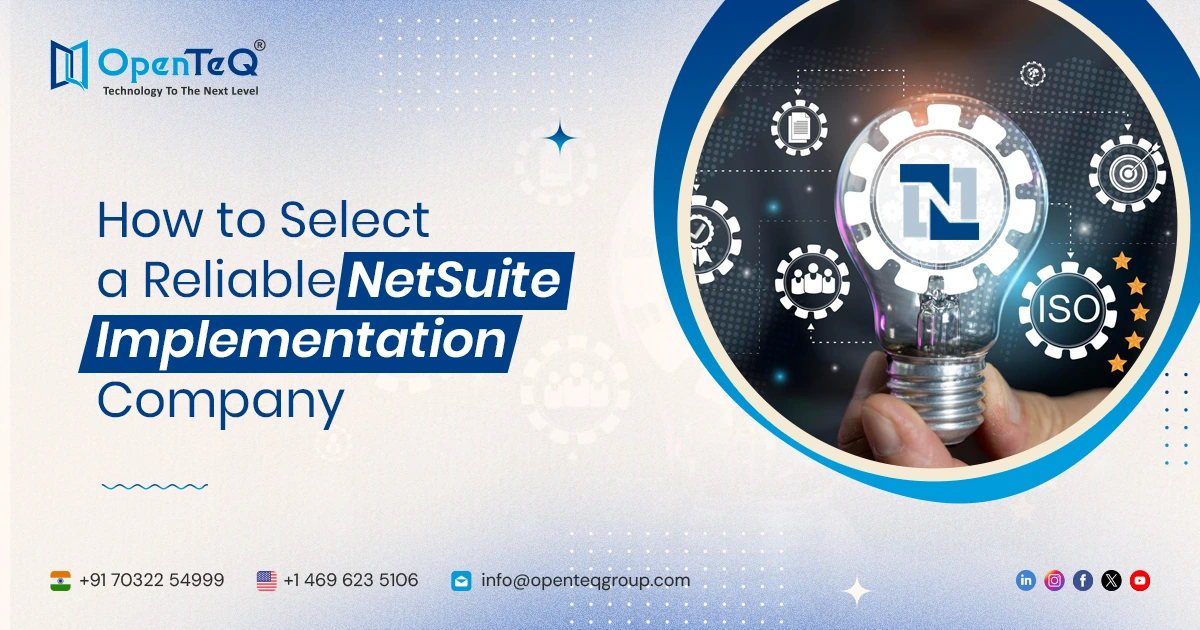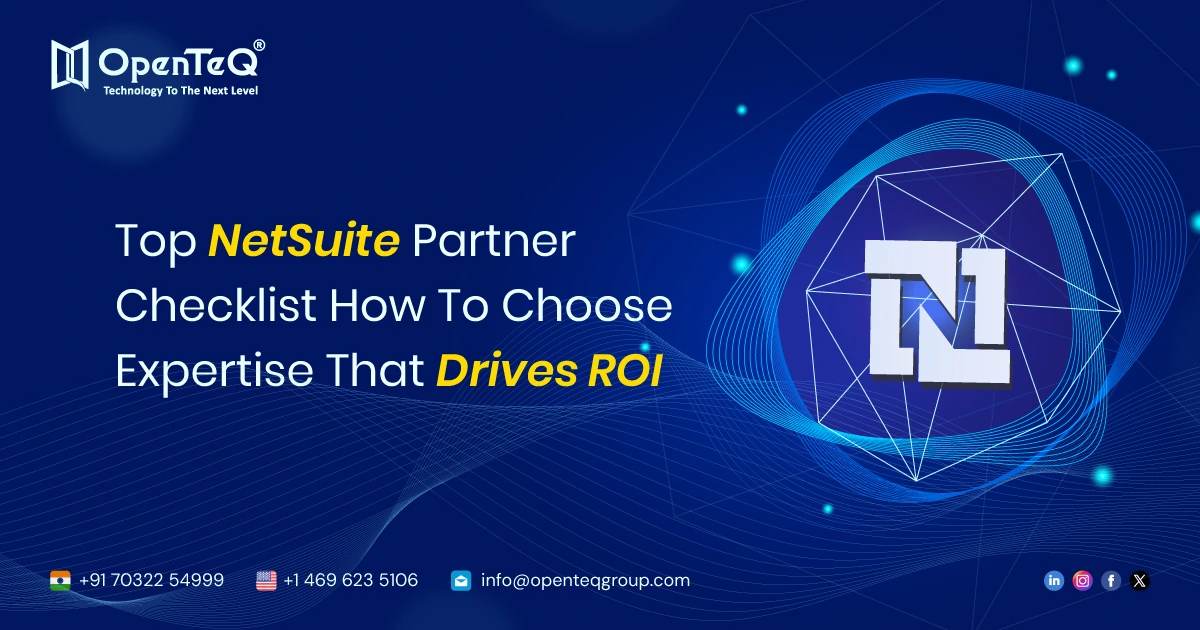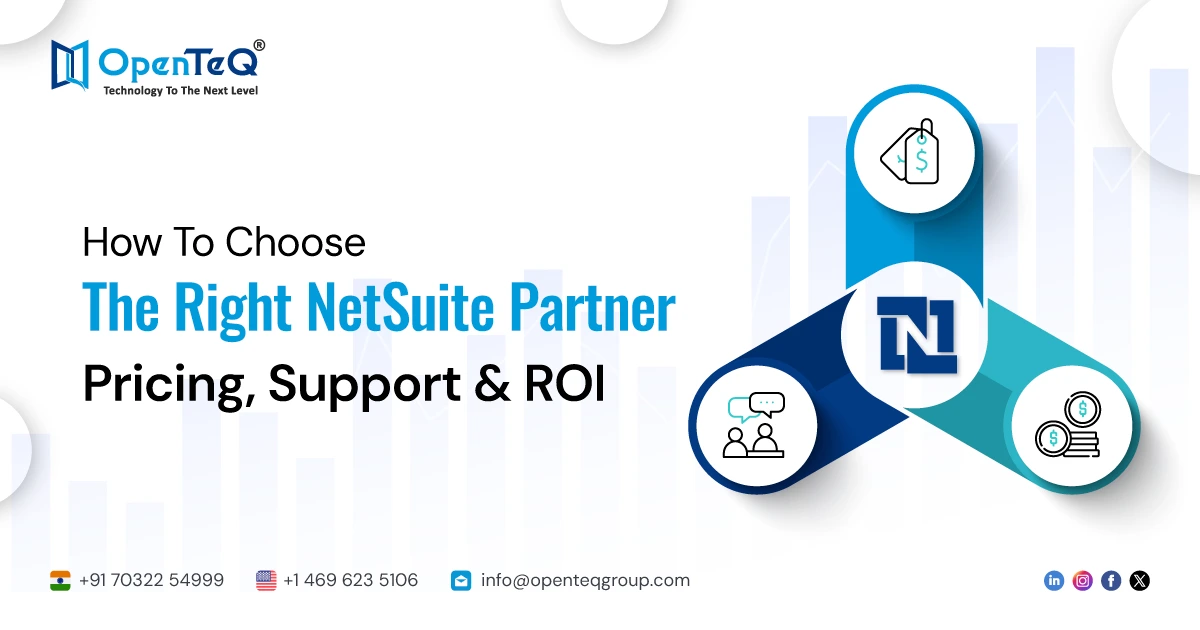10 Steps to Evaluating NetSuite for Manufacturing Companies
With its core software that is excellent at managing supply chain, engineering, planning, forecasting, warranties and maintenance, and order management, NetSuite is a competitive cloud ERP for manufacturers. NetSuite is an ERP software solution that covers every aspect of a business, whereas best-in-class manufacturing ERPs may struggle due to their overemphasis on specialization.
Nevertheless, a customized approach to ERP selection is necessary for manufacturers due to the differences in manufacturing processes between a plant, mill, factory, and assembly line. We will first look at the various kinds of manufacturers and their operations before assessing NetSuite for manufacturing enterprises.
1. Define Your Needs :
Start by identifying your current pain points and areas for improvement. What specific challenges do you face in inventory management, production planning, or financials? A clear understanding of your needs will help you determine if NetSuite offers the functionalities to address them. If your company is a discrete manufacturer that makes unique and distinct products, your needs may be very different from those of a process manufacturing firm that produces food, chemicals, or plastics.
A mixed-mode manufacturer's needs may be like those of discrete and process manufacturers, but they are also radically different when compared.
Engineered to Order (ETO) production differs from other types of manufacturing in that it requires computer-aided design, work orders, bills of materials, manufacturing instructions, and materials sourcing and purchasing before fabrication can commence.
Then there are companies that specialize in contract manufacturing, which produce goods based on design specifications provided by another organization. This is another sort of manufacturing, with its own set of ERP requirements.
To evaluate NetSuite for your firm, consider the following questions:
- Who are you, as a manufacturer?
- What are your main requirements as a manufacturer?
- What processes are you trying to monitor?
- What are your present pain points?
Once you've answered these questions, you can start evaluating NetSuite manufacturing modules to see if they're a good fit for your firm. It is critical that you start by establishing the type of manufacturer you are. Then you can observe a scripted demonstration procedure to see how NetSuite can meet your requirements.
2. Financial Data
As with any accounting software project, the integrity of the data entering the new software will have a significant impact on how effectively it performs. NetSuite has strong core financials, but duplicate entries, missing information, and other data hygiene issues will not disappear when you switch to a new system. Making sure your data is clean before migrating will help you have a smooth transition.
3. CAD and PLM system integration
In-house design and engineering organizations that use CAD software and Product Lifecycle Management systems can benefit from specialized third-party solutions that interface seamlessly with NetSuite. These interfaces ensure that product information remains consistent with work order documents, reducing errors from manual data entry.
4. Documents : Work Order, BOMS, and Manufacturing Instructions
Mapping your organization's whole production process will assist you in tailoring your NetSuite configuration to your specific systems, techniques, and equipment. This will simplify the preparation of work orders, BOMs, Product Requirements Documents, Manufacturing Build Packages, and other critical manufacturing documentation.
5. Manufacturing Execution
Your production execution system needs are also a significant consideration. This could involve tracking material entering a work order, labor entering, overhead entering, orders leaving the shop, and other critical milestones in the process, as well as tracking progress through each work cell on NetSuite Mobile.
Nonetheless, the differences in production processes between a plant or a mill and a factory or an assembly line necessitate a tailored strategy to ERP selection for manufacturers. To analyze NetSuite for Manufacturers, we'll first look at the various sorts of manufacturers and their procedures.
6. Quality Control
Maintaining standards is another key part of the manufacturing industry. When considering whether to adopt manufacturing with NetSuite , you should evaluate the quality control functions. What aspects of quality control will need to be tracked? Where will the reports go, and who will be responsible for verifying that your company's products satisfy its standards?
7. Regulatory Compliance
Meeting regulatory regulations is an important aspect of most manufacturing organizations' daily, weekly, and monthly procedures, and NetSuite for Manufacturing
Provides audit-ready solutions for regulatory compliance. Because nearly all manufacturers have unique laws that must be followed, you must consider the regulatory requirements you are tracking in your present system and how they will be transferred to the new system.
NetSuite Partners with OpenTeQ Technologies to Streamline Business Operations
8. Inventory and Warehouse Management
Raw material inventory, finished goods inventory, and warehouse management are all critical considerations. Examine your company's content and goods versus what you want to see from NetSuite. Will you attempt to simplify your production processes? Do you expect company to grow at an exponential rate? Do you wish to cut expenses? As a manufacturer seeking to optimize your operations, partnering with a NetSuite Solution Provider Partner specializing in NetSuite for Manufacturing can unlock a world of efficiency and growth.
9. Request a Demo and Consultation
Schedule a demo with a NetSuite representative or your chosen Solution Provider Partner. This allows you to experience the software firsthand and ask questions about specific functionalities relevant to your manufacturing needs.
10. References and Case Studies
Review case studies and testimonials from other manufacturing companies using NetSuite. Understanding their experiences can provide valuable insights and help you make an informed decision.
Summary
NetSuite is well-suited to a variety of manufacturing use cases. Beyond shop-floor capability for work order data and CAD drawings, it can handle financials, order administration, marketing, supply chain management, planning, and forecasting for the entire business.
OpenTeQ Group has vast expertise in implementing NetSuite ERP Software for Manufacturing Companies and can give industry-specific guidance. Contact us today to schedule a free consultation for NetSuite Services with one of our expert NetSuite Solutions Provider. Reach out at info@openteqgroup.com or contact at +91 7032254999 /
+1-602 806 4634 if you are seeking NetSuite Manufacturing ERP & Management Software!







